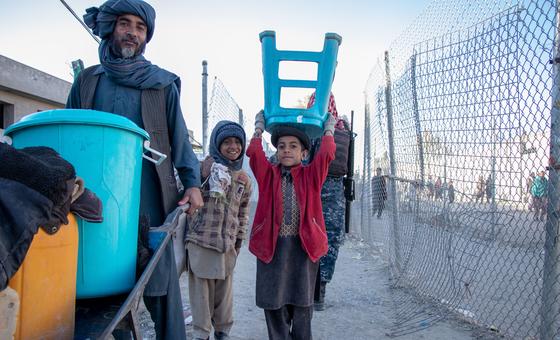Following Pakistan’s announcement to repatriate Afghan nationals, the UN’s refugee and migration agencies together appealed to Islamabad on Saturday to continue protecting those who sought safety in the country and could be “at imminent risk if forced to return”.
Amid a “severe humanitarian crisis”, Afghanistan currently faces several human rights challenges, particularly for women and girls, according to the UN.
Pakistan’s new plans would have “serious implications” for all who have been forced to leave the country and may face serious protection risks upon their return, the UN refugee agency, UNHCR, and the International Organization for Migration (IOM) said in a joint statement.
“The forced repatriation of Afghan nationals has the potential to result in severe human rights violations, including the separation of families and deportation of minors,” the UN agencies warned.
Pakistan continues to be one of the world’s largest refugee-hosting countries, providing safety to some 1.3 million registered refugees who were forced to flee their countries, 99 per cent of which are Afghans, according to UNHCR’s latest update in August.
‘Suspend forcible returns’
They reiterated a call on all countries to “suspend forcible returns of Afghan nationals” and ensure any possible returns to the country take place in a safe, dignified, and voluntary manner.
Acknowledging Pakistan’s sovereign prerogative over domestic policies, its need to manage populations on its territory, and its obligations to ensure public safety and security, the agencies recalled their longstanding and strong collaboration with the Government.
“UNHCR and IOM appreciate Pakistan’s generous hospitality towards Afghan nationals for over four decades, despite challenges,” they said, adding that they “stand ready to provide support in developing a comprehensive and sustainable mechanism to register and manage Afghan nationals, including those who may be in need of international protection”.

